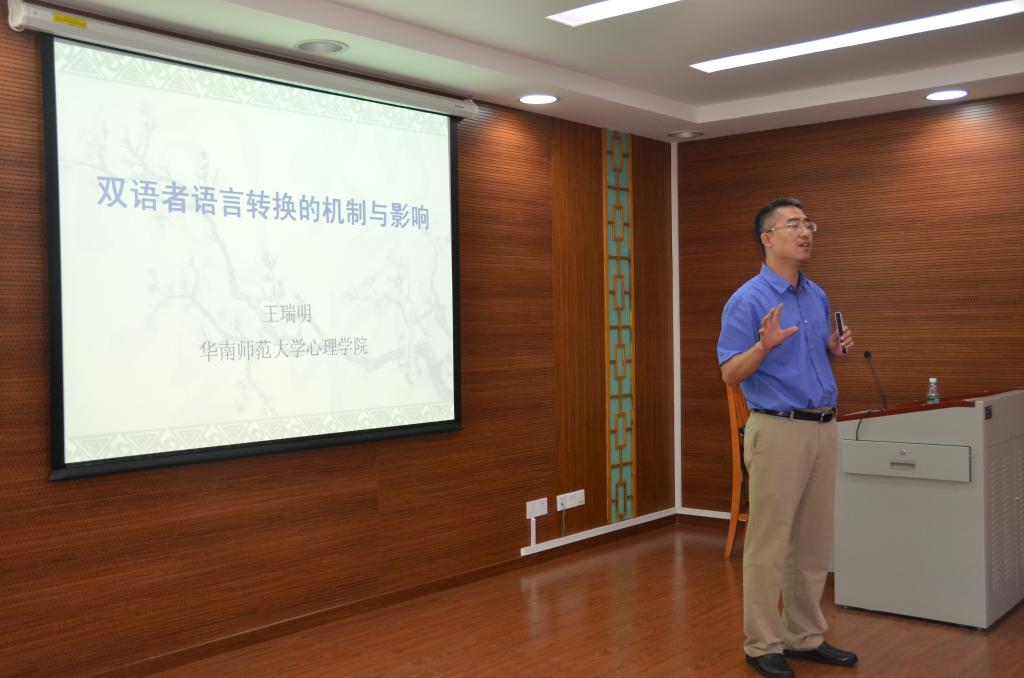On the afternoon of May 29th, 2015, ProfessorRuiming Wang from South China Normal University was invited to deliver thelecture “The mechanism and impacts of bilingual language switching” at theNational Key Research Center for Linguistics and Applied Linguistics, GuangdongUniversity of Foreign Studies (GDUFS). Hosted by Professor Yanping Dong, the talk attracted teachers and students from GDUFS and other universities.
Professor Wang first introduced their findings on bilingual representations. They found that proficient bilinguals’ memory representation supports the concept mediation model, while less proficient bilinguals’ memory representation is consistent with word association model. Besides, language proficiency is an important factor influencing late bilinguals’ semantic access. Professor Wang also introduced their findings on the processing of non-target language in language production. They found that non-target words of the non-target language would be activated when less proficient Chinese-English bilinguals perform language production tasks. Moreover,the activation was influenced by bilinguals’ proficiency of the non-targetlanguage and their familiarity of the non-target words. In terms of the processing of non-target language in language comprehension, Professor Wang and his colleagues found in an ERP study that word frequency effect would appear when either Chinese or English is the non-target language, but the word frequency effect of Chinese appears earlier than that of English. Furthermore, they found that the non-target language would be activated in Chinese-English bilinguals’ language comprehension process, but the activation level would be different in different tasks. In the fourth part of his lecture, Professor Wang introduced their major findings on impacts of language switching on bilinguals’language and cognition. First, they found that Chinese-English bilinguals’performance in Stroop tasks were influenced by their cognitive control and lexical access skills. Meanwhile, bilingual language switching improves their cognitive control ability but reduces their proficiency inaccessing their first language. Second, they found that second language learning could improve Chinese-English bilinguals’ cognitive flexibility and cognitive control but not their reaction control. Thirdly, they found via fMRI that differentcognitive control components have distinct neural bases.
Throughout the lecture that lasted for one hour and a half, all the participants interacted actively with Professor Wang. The audience gained valuable knowledge about bilingual language switching and future directions in this field.

